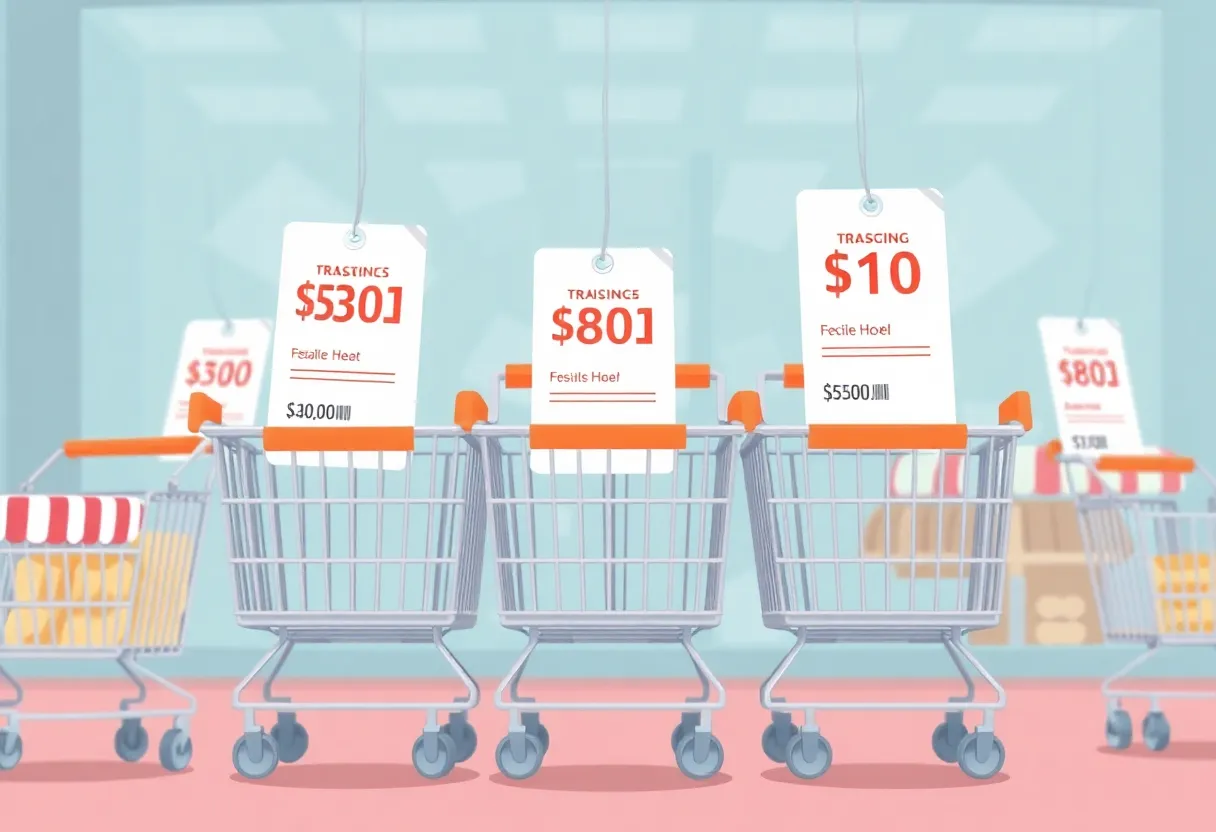Massachusetts, September 4, 2025
News Summary
Massachusetts has introduced new regulations banning hidden ‘junk fees’ in various industries. Effective September 2, 2025, businesses must disclose total prices upfront and simplify cancellation processes for trial offers. The Attorney General aims to enhance price transparency and protect consumers from unexpected charges, which cost them approximately $9 billion annually. The rules require businesses across sectors, including hotels and restaurants, to display all mandatory fees clearly.
Boston
Massachusetts enacted new regulations banning so-called “junk fees” that took effect on September 2, 2025, requiring businesses to disclose all mandatory charges up front, make trial offers easier to cancel before additional billing, and provide clearer explanations for any added costs. The rules were announced by the state Attorney General and are intended to increase price transparency, reduce surprise charges at checkout, and promote fair competition among businesses.
Key details up front
The regulations define junk fees as hidden, surprise, or unnecessary costs that raise the total price above the advertised amount. Businesses must display the total price, including all mandatory fees, before customers are asked to enter payment information. The rules cover multiple sectors such as hotel bookings, concert tickets, apartment rentals, subscription services, short-term rentals, and restaurants. Airline ticket purchases are exempt because they are governed by federal law.
Effective date and enforcement
The rules became effective on September 2, 2025. Consumers who encounter unfair or undisclosed fees can file complaints through the Attorney General’s online complaint system. The regulations are accompanied by guidance documents to help businesses comply and to explain enforcement procedures.
Supporting details
Scope and examples
The regulations require hotels to include unavoidable charges—such as fees for towels, parking, or credit card processing—in the advertised total price. Restaurants must show total prices on menus and bills, though they may continue to apply service fees for large parties with clear disclosure. Subscription services and companies offering trial periods must disclose total costs up front and provide simpler ways for consumers to cancel before being charged beyond the trial.
Reasons for the rules
State enforcement officials estimate that hidden fees impose a substantial financial burden on consumers, with an estimated impact of roughly $9 billion annually. The regulations aim to reduce surprise charges that typically appear late in transactions, often after consumers have provided personal or billing details, and to encourage transparent competition among businesses.
Business compliance and guidance
The Attorney General’s office issued new guidelines to assist businesses in adapting pricing practices and disclosures. These materials outline when fees must be included in advertised totals, how to explain optional versus mandatory charges, and the documentation businesses should maintain to demonstrate compliance. The regulations also require businesses to provide meaningful opportunities for consumers to waive or avoid optional charges where feasible.
Reaction and context
Some business owners have expressed concerns that the rules disrupt existing pricing models. One restaurant owner said the regulations interfere with a previously used “hospitality included” charge that bundled service and hospitality costs into a single line item. Regulators anticipate that businesses will need to rethink menu formatting and how service-related charges are presented to customers.
The state-level rules follow federal action in May 2025 that targeted hidden fees for live events and required short-term rental platforms to display total prices prominently. Earlier federal attempts to implement a nationwide ban on junk fees were reversed prior to this state regulation, prompting Massachusetts to adopt its own enforceable standard.
How consumers can act
Consumers who encounter undisclosed or misleading fees are encouraged to file complaints through the Attorney General’s complaint portal. The Attorney General’s office also provides consumer-facing resources explaining the new requirements, examples of common violations, and steps to take when attempting to obtain refunds or correct charges.
What businesses should do
Businesses should review their pricing, reservation systems, and checkout flows to ensure total prices are shown before payment details are collected. They should document mandatory versus optional fees, update menus and ticketing pages, and adopt clear cancellation procedures for trials and subscriptions. The state guidance offers practical steps for implementation and compliance timelines.
Background
The new Massachusetts regulations are part of broader efforts to improve market transparency and protect consumers from surprise costs. They reflect growing attention at both state and federal levels to pricing clarity in digital commerce, hospitality, entertainment, and rental markets. By setting clear rules for disclosure and cancellation, the regulations aim to make it easier for consumers to compare prices and avoid unexpected charges.
FAQ
What is a “junk fee”?
A junk fee is any hidden, surprise, or unnecessary cost that increases the total price above what was advertised. These often appear late in the checkout process or after personal billing information has been provided.
When did the rules take effect?
The regulations went into effect on September 2, 2025.
Which businesses are affected?
Hotels, concert and event ticket sellers, short-term rental platforms, apartment rentals, subscription services, restaurants, and other consumer-facing businesses are covered. Airline ticket sales are excluded due to federal regulation.
What must businesses display?
Businesses must clearly display the total price, inclusive of all mandatory fees, before requesting payment information from consumers.
How are trial offers handled?
Trial offers must include clear disclosure of total costs and provide easy cancellation methods before consumers are charged beyond any trial period.
How can a consumer complain?
Consumers may file complaints through the Attorney General’s online complaint system. The state office also provides guidance on documentation to include when filing complaints.
Are restaurants allowed to charge service fees?
Restaurants must show total prices on menus and bills. Service fees for large parties are permitted if clearly disclosed and included in the total where mandatory.
Quick reference table
| Topic | Key information |
|---|---|
| Effective date | September 2, 2025 |
| Who issued the rules | Massachusetts Attorney General |
| Definition of junk fees | Hidden, surprise, or unnecessary costs that raise the advertised price |
| Main requirements | Display total price before payment, disclose mandatory fees, simplify trial cancellations |
| Common sectors affected | Hotels, events, rentals, subscriptions, restaurants, ticketing |
| Exemptions | Airline tickets (federal regulation) |
| Estimated consumer impact | Approximately $9 billion annually from hidden fees (state estimate) |
| How to report | File a complaint via the Attorney General’s online complaint system |
Deeper Dive: News & Info About This Topic
HERE Resources
Massachusetts Officials Face Backlash Over Excessive Spending
New FTC Rule Bans Hidden Fees on Tickets and Lodging
New Regulations in Massachusetts to Eliminate Junk Fees
Massachusetts Attorney General Takes Action Against Junk Fees
Additional Resources
- CBS News
- Boston Herald
- WCVB
- Realtor.com
- Wikipedia: Consumer Protection
- Google Search: Junk Fees Massachusetts

Author: STAFF HERE BOSTON WRITER
The BOSTON STAFF WRITER represents the experienced team at HEREBoston.com, your go-to source for actionable local news and information in Boston, Suffolk County, and beyond. Specializing in "news you can use," we cover essential topics like product reviews for personal and business needs, local business directories, politics, real estate trends, neighborhood insights, and state news affecting the area—with deep expertise drawn from years of dedicated reporting and strong community input, including local press releases and business updates. We deliver top reporting on high-value events such as Boston Marathon, Head of the Charles Regatta, and Boston Harborfest. Our coverage extends to key organizations like the Greater Boston Chamber of Commerce and Associated Industries of Massachusetts, plus leading businesses in finance, biotech, and insurance that power the local economy such as Fidelity Investments, Biogen, and Liberty Mutual Insurance. As part of the broader HERE network, we provide comprehensive, credible insights into Massachusetts's dynamic landscape.





